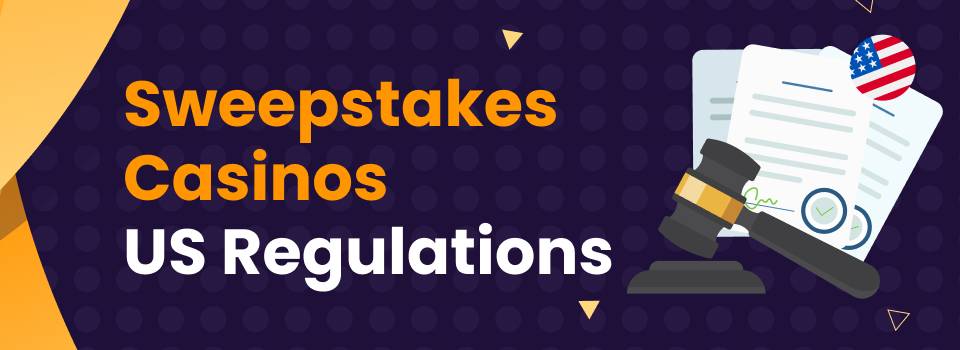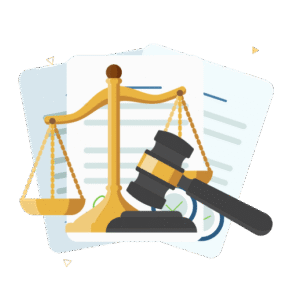
Are Sweepstakes Casinos Legal in the U.S.?
Yes, sweepstakes casinos are legal across most of the United States. They don’t fall under conventional gambling laws. Instead of betting real money, players use virtual currencies—usually a mix of Gold Coins and Sweeps Coins—to play games and potentially win prizes.
Because there’s no mandatory purchase required to participate, and the system is modeled on promotional sweepstakes rather than real-money betting, these platforms are generally compliant with U.S. sweepstakes laws. However, the legality may vary slightly depending on the state you reside in.
What Makes Them Different from Real-Money Casinos?
Sweepstakes casinos operate on a dual-currency model:
- Gold Coins: Used for entertainment only and hold no cash value.
- Sweeps Coins: Used to enter sweepstakes-based games and can be redeemed for real prizes such as gift cards or cash.
This model allows sweepstakes casinos to operate without requiring gambling licenses in most states. Players receive free Sweeps Coins via bonuses, giveaways, or no-purchase mail-in entries—ensuring compliance with the "no purchase necessary" legal standard.
In contrast, traditional online casinos involve betting real money and require strict licensing in regulated states like New Jersey, Pennsylvania, and Michigan.
Legal Foundations: The Federal Sweepstakes Rulebook
Sweepstakes casinos are primarily governed by federal laws and state promotional contest regulations. Key elements include:
- No Purchase Necessary: A core legal requirement for promotional sweepstakes. Players must be able to participate without spending money.
- Chance and Prize: The game must involve an element of chance with a reward attached.
- Skill vs. Luck: Unlike skill-based contests, sweepstakes must not require player skill to win.
To stay compliant, sweepstakes casinos must clearly define their prize redemption systems, entry methods, and bonus terms. Transparency is non-negotiable.
Which States Restrict Sweepstakes Casinos?
Although the sweepstakes model is legal in most of the U.S., a handful of states have local laws or regulatory conditions that prohibit or restrict participation:
Currently Excluded States:
- Washington
- Idaho (Gold Coins Only)
- Nevada
- Michigan
- Montana
- Delaware
These states either prohibit the promotional sweepstakes model entirely or apply strict interpretations that make compliance difficult. Always consult the terms and conditions of each site before playing.
How Sweepstakes Casinos Stay Compliant
Legitimate sweepstakes casinos take several steps to ensure they remain on the right side of the law:
- Clear Separation of Currencies: Gold Coins and Sweeps Coins are always labeled separately and used for different purposes.
- No-Purchase Entry Options: Most sites allow players to request free Sweeps Coins by mail, fulfilling the legal requirement for free entry.
- Transparent Terms: Games must display odds, rules, and eligibility requirements clearly.
- Responsible Gambling Tools: Many operators provide self-exclusion tools, time limits, and spending reminders.
At SweepsChaser, we only review sites that meet these standards.
What to Watch Out For
If you're new to sweepstakes casinos, keep these tips in mind:
- Look for Verified No-Purchase Methods: Always check that you can request Sweeps Coins without spending money.
- Read the Redemption Policy: Make sure you understand how and when you can cash out winnings.
- Check for Restricted States: Even legitimate platforms may exclude certain U.S. regions.
- Avoid Red Flags: Sites without published terms, unclear bonus policies, or vague support options may not be trustworthy.
Our Compliance Monitoring Process
At SweepsChaser, legal clarity is part of our editorial promise. Here's how we stay updated:
- Weekly Terms Audits: We regularly check operator terms for changes to eligibility, bonus structures, and prize claims.
- Operator Transparency Checks: Only casinos that clearly explain their dual-currency models, no-purchase methods, and redemption processes are listed.
- State Law Monitoring: Our research team tracks evolving legislation across all 50 states and updates our reviews accordingly.
- Editorial Review: All legal content goes through a fact-checking process before publication.
You can read more about our Publishing Principles or our approach to Responsible Gaming.
Taxation of Sweepstakes Casino Winnings
Even though sweepstakes casinos differ from traditional gambling platforms, winnings from redeemable Sweeps Coins are still considered taxable income under U.S. law.
🧾 Federal Taxes
The IRS treats sweepstakes winnings the same as other prize-based income. If you redeem Sweeps Coins for cash or gift cards, you must report the fair market value of those rewards on your Form 1040 as “Other Income”.
- Operators may issue a Form 1099-MISC if your annual redemptions exceed $600.
- Even if you don’t receive a 1099, you’re still legally required to report the income.
🏛 State Taxes
Tax treatment at the state level varies:
- In most states, sweepstakes winnings are subject to state income tax.
- A few states (e.g., Florida, Texas, Washington) do not levy state income tax, so only federal tax applies.
- Check your local Department of Revenue for state-specific rules.
💡 Best Practices
- Keep records of all redemptions, including screenshots or email confirmations.
- Consult a tax professional if you redeem significant amounts.
- Avoid underreporting — the IRS can assess penalties for unreported sweepstakes income.
Important Disclaimer
This page is intended for general informational purposes only and does not constitute legal advice. While we do our best to keep information accurate and up to date, users are responsible for verifying the rules and restrictions of each sweepstakes platform in their jurisdiction.
If you notice outdated information or wish to ask a legal question, please contact us at [email protected].
References
- FDIC
- Intuit Turbotax
- American Bar Association
- IRS Instructions for Forms W-2G
- IRS Topic No. 419
- UIGEA Full Text
- Washington State Gambling Commission
- Michigan Gaming Control Board
- Pennsylvania Gaming Control Board
- New Jersey Division of Gaming Enforcement
- Florida Sweepstakes Regulations
- FTC Sweepstakes and Lottery Scams
- Nevada Gaming Control Board
- Investopedia
